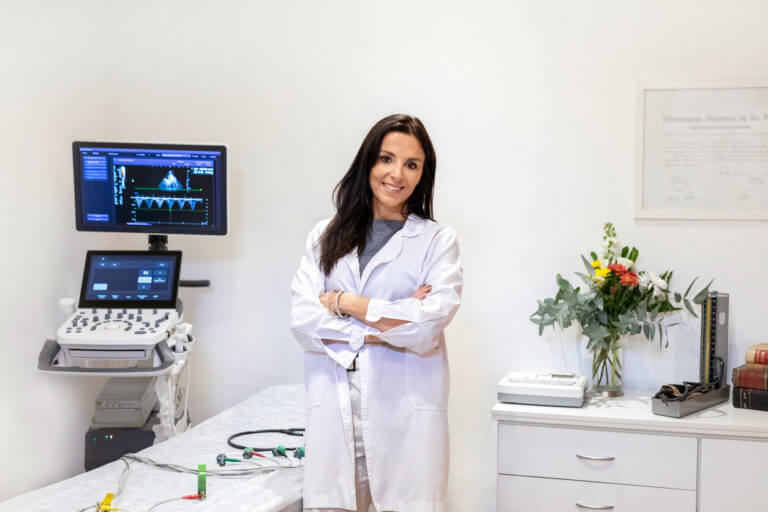
The heart, that tireless muscle that keeps us ticking away, is a powerhouse in the body. But like any complex machine, sometimes it needs a closer look. That’s where an echocardiogram, affectionately referred to as an ‘echo,’ comes in handy.
This non-invasive medical test harnesses the power of ultrasound waves to capture live images of your heart in action. But when exactly should you consider getting an echocardiogram, and what could it reveal about the beat of your health? Let’s find out!
Unveiling the Basics of an Echocardiogram
An echocardiogram is to the heart what an ultrasound is to the womb—a kind of motion picture that captures how the heart beats and pumps blood. This safe procedure involves a technician placing a probe (or transducer) on your chest, emitting high-frequency sound waves that bounce off your heart to create a real-time visual image on a monitor.
This test allows your doctor to see a slowed-down, detailed view of your heart’s function, which X-rays and other imaging techniques cannot replicate without special contrast dyes or radiation exposure.
There are different types of echocardiograms, such as transthoracic echocardiogram (TTE), transesophageal (TEE), and stress echocardiogram. Each of these is performed under slightly different conditions but with the same goal in mind—evaluating your heart’s performance and structure to help guide treatment.
- Transthoracic Echocardiogram (TTE): This is the most common type and is performed by moving the transducer across the chest surface.
- Transesophageal Echocardiogram (TEE): This involves passing a specialized probe down the esophagus to get a closer and clearer view of the heart. This is particularly useful for examining the back structures of the heart that are hard to see with TTE.
- Stress Echocardiogram: This test is conducted before and after the heart is stressed, either through exercise or medication, to observe how the heart functions under stress.
Reasons to Get an Echocardiogram
Bringing your beating heart to the screen isn’t something you schedule on a whim. There are clear signs and situations where an echocardiogram is warranted. Here are some indicators:
Symptoms Suggesting Heart Issues
If you experience symptoms like shortness of breath, chest pain, irregular heartbeats, or swelling in the legs, your cardiologist may recommend an echocardiogram. These symptoms could suggest various heart issues, from valve problems to heart failure.
Monitoring Existing Heart Conditions
For those already diagnosed with heart conditions, regular echocardiograms may be necessary to monitor the disease’s progression and how well the treatment is working. Conditions such as valve diseases, heart failure, and congenital heart defects often require ongoing observation.
Assessing Heart Valve Function
Echocardiograms are particularly useful in evaluating the function of the heart’s valves. They can detect whether the valves open wide enough for adequate blood flow or close fully to prevent leakage.
This information is crucial in diagnosing conditions like valve stenosis (narrowing) or valve regurgitation (leakage).
Detecting Heart Chamber Problems
This test can also measure the size and shape of the heart’s chambers. Abnormalities in the heart chamber sizes can indicate conditions like cardiomyopathy, where the heart’s ability to pump blood is diminished.
Evaluating Previous Heart Treatments
If you’ve undergone any heart surgery or treatments, an echocardiogram can assess the effectiveness of these interventions. It can also check the condition of artificial heart valves or patches used in heart surgeries.
Risk Assessment for Potential Heart Issues
An echocardiogram might be recommended as part of a comprehensive risk assessment for heart disease, especially if you have high blood pressure, high cholesterol, diabetes, a family history of heart disease, or other risk factors.
How is an Echocardiogram Performed?
The test, echocardiogram, is performed by a cardiac sonographer. You’ll lie on a table, and a small device called a transducer is moved across your chest.
The transducer sends sound waves into your body, which bounce off your heart and return to the device, creating the images. The procedure typically takes less than an hour, and you can usually go home the same day.
Echocardiogram in New Jersey
An echocardiogram is a powerful tool in diagnosing and managing heart conditions. It’s a safe, non-invasive way to get a detailed look at your heart’s structures and functions.
If you’re experiencing symptoms of a heart problem or are at risk for heart disease, consult our heart doctor at Hudson MD Group about whether an echocardiogram might be right for you.
Our team of experienced specialists employs the latest ultrasound technology to provide comprehensive, non-invasive evaluations of your heart’s structure and function, ensuring you receive the highest standard of care. Beyond echocardiography, we offer a full spectrum of cardiology services, from preventive care to advanced interventional procedures, all under one roof.
Schedule your appointment today by calling us at (973) 705-4914 or request your visit here.
We look forward to serving you!


